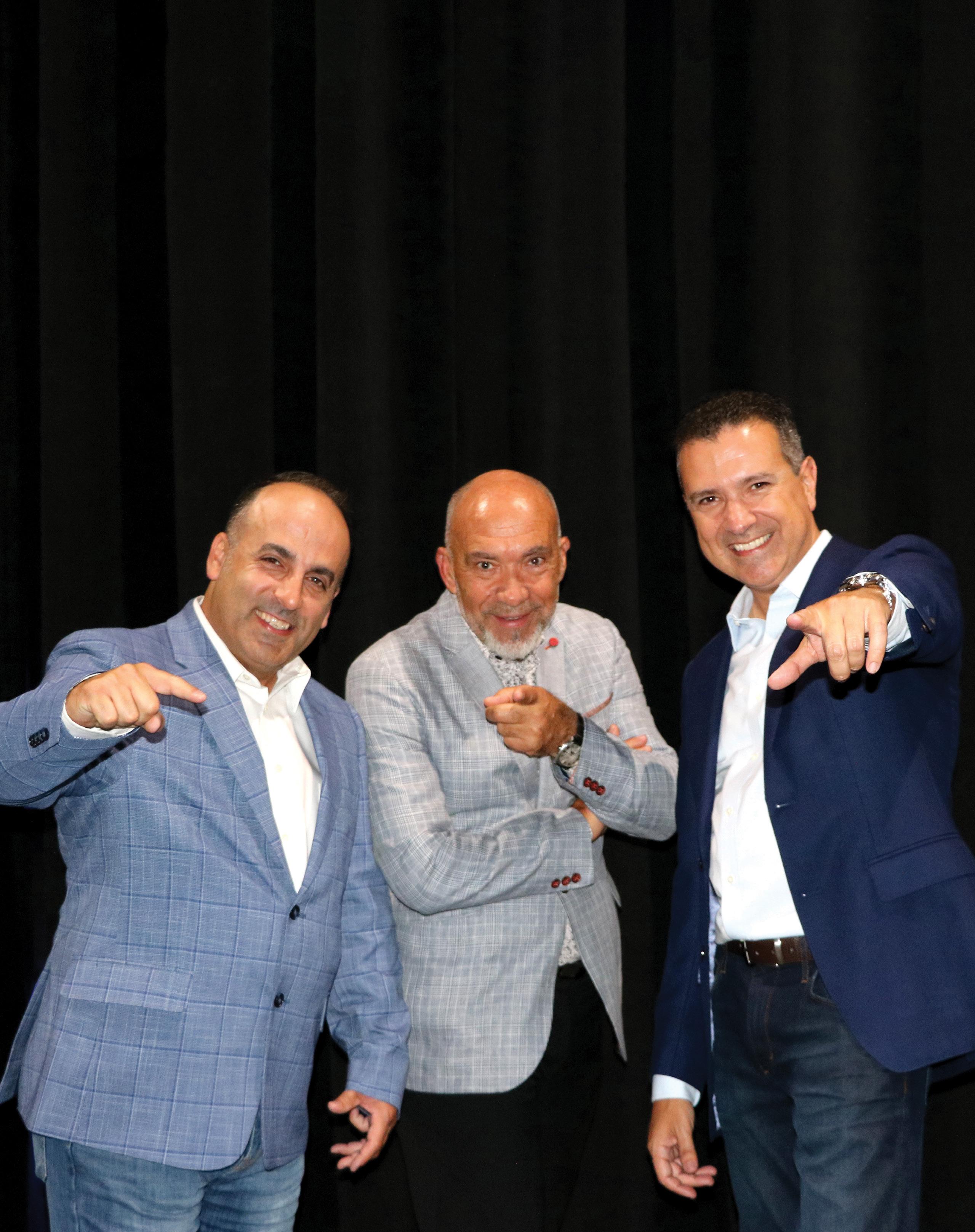
37 minute read
IPMA cada vez mais perto de si
... no futuro, consigo “ver” o espetáculo em várias cidades…

Os IPMA (International Portuguese Music Awards) nasceram com o objetivo de celebrar e homenagear os artistas luso-descendentes e portugueses espalhados pelo mundo. David Saraiva e José Xavier (mais conhecido por Zack), são dois dos cofundadores e produtores que continuam a impulsionar o projeto que se formou depois de dois eventos de beneficência.
Sobre a pandemia, para os cofundadores, nem tudo foi negativo e segundo David Saraiva até trouxe coisas positivas “porque (…) possibilitou um “intervalo” para que pudéssemos autoavaliar-nos…”. A reorganização forçada resultou em dois espetáculos virtuais - 2020 e 2021, respetivamente.
2021 marca a formalização da parceria entre os IPMA e a Camões Entertainment. Entre outros, esta ligação tem como objetivo chegar a mais artistas e a outras cidades, incluindo Toronto.
No dia 23 de abril de 2022 celebra-se o 10º. Aniversário dos IPMA, que vão realizar-se no The Providence Performing Arts Center em Providence (PPAC), Estados Unidos da América.
Revista Amar: O David e o José, são cofundadores do já conhecido International Portuguese Music Awards (IPMA). Apesar dos prémios já serem conhecidos entre os luso-canadianos, pouco sabemos dos organizadores… então, quem são o David Saraiva e o José Xavier? David Saraiva: Sou filho de emigrantes portugueses da Beira Alta, mas nasci nos Estados Unidos da América. Vivi em Rhode Island até recentemente, mas mudei-me com a minha família para Tampa, em Miami. Sou casado e tenho dois filhos. Sou Técnico de Informática, mas a música é a minha paixão e comecei aos 10 anos. Toco na banda do Jorge Ferreira há cerca de 17 anos. E foi por estar sempre envolvido na comunidade portuguesa e nos eventos portugueses ao longo dos anos, que cheguei aqui. José Xavier: Sou mais conhecido por Zack. Nasci em Massachussets, nos Estados Unidos da América. Os meus pais são da ilha das Flores, Açores. Sou casado e pai de uma menina e dois meninos. Sou Engenheiro Civil. Como o David, também comecei muito novinho na música… tinha 5 ou 6 anos quando comecei a aprender teclado. Toquei em várias bandas e viajei à volta do mundo. Estou com a banda Eratoxica há 20 anos e já tocámos em Toronto.
RA: Há quantos anos é que se conhecem? JX: Já somos amigos há pelo menos 25 anos.
RA: Como é que nasceram os IPMA? DS: De facto, é uma boa pergunta. Os IPMA nasceram com 4 membros cofundadores (o Zack, o Floriano Cabral, Gary Sebastião e eu), mas antes disso trabalhámos em 2 concertos de beneficência – em 2005 para as vítimas do furacão Katrina e em 2010 para as vítimas do terramoto no Haiti, que foram transmitidos na televisão ao vivo. Como correu bem, o Floriano juntou-nos e falou que tinha uma ideia (IPMA) e, como tínhamos alguma experiência, historial, dávamo-nos bem e cada um de nós com um estilo próprio porque não tentar? E foi assim que começou! JX: Começámos os IPMA há cerca de 9 anos… tem sido uma paixão! Fomos melhorando a qualidade dos IPMA, desde o primeiro evento. É importante estarmos sempre a reorganizar e rever os detalhes para melhorar.
RA: E tiveram algumas dificuldades? DS: Nós desde o início sempre tivemos uma equipa incrível, com mais de 100 pessoas e trabalhamos juntos há tantos anos, que já somos como uma família! Dificuldades? Como em tudo que comece… não se sabe se vai ser bem-sucedido, se vai ter inscrições, se vai atrair o público – é um tiro no escuro, porque não sabemos o que vai acontecer. E depois, como é óbvio, há o aspeto financeiro o projeto tinha que poder sobreviver. JX: O financiamento é, basicamente, feito por patrocínios e a venda de bilhetes. Nos últimos 7 a 8 anos temos esgotado o Zeiterion Theater em New Bedford. Todos os anos temos 5 a 6 novos patrocinadores e os patrocínios têm aumentado, quer seja patrocínio Gold ou mais elevado. Tem resultado todos os anos e nunca estivemos numa posição em que não podíamos continuar. O nosso compromisso com os artistas começa com muitos meses de antecedência sem termos o financiamento necessário para concretizar o quer que seja, mas no fim tudo acaba por acontecer. DS: O segredo é agradecer a boa comunidade que temos, por ser como é e pelo apoio. Quando conseguimos 90 patrocinadores, isso diz-nos que eles valorizam e querem que os IPMA sobrevivam e continuem.
RA: E quando é que assumiram a produção dos IPMA sozinhos? DS: Em 2019.
RA: Na época, foi fácil selecionar as várias categorias (Music Video of the Year, Instrumental, World Music, Traditional, Fado, Dance, Rap/Hip-Hop, Rock, Pop, Música Popular e Song of the Year)? DS: No início nada foi fácil e nós nem sabíamos, na época, o que ia acontecer. Vimos o que outros eventos deste género faziam e escolhemos os géneros musicais principais, tanto que o Music Video of the Year foi adicionado alguns anos mais tarde. JX: No fundo está na linha dos concursos tradicionais por categorias, só generalizamos um pouco. Temos aquela categoria especial para os portugueses - Música Popular - que foge ao padrão, mas que obviamente resulta muito bem aqui. Para além desta, temos Fado que ainda é mais portuguesa do que as outras categorias… de resto, as outras são bastante comuns. Não se pode considerar que a seleção de categorias tenha sido terrivelmente difícil. Mudámos um pouco algumas coisas, contudo temos sido bastante consistentes ao longo do tempo, desde o primeiro ano. RA: A língua de Camões é a 5ª. mais falada no mundo. Nunca pensaram ter uma categoria específica para canções só em português? Porque nas outras categorias as canções podem ser em qualquer língua desde que os compositores e cantores sejam portugueses ou luso-descendentes, certo? DS: Certo e muito honestamente nunca pensámos nisso. Não é uma má ideia e nós gostamos de ideias novas… somos flexíveis (risos). Quem sabe no futuro? O que nos perguntam frequentemente é o oposto, ou seja, porque deixamos participar canções em diferentes línguas.
RA: E o que respondem? DS: A resposta é simples… quando se começa uma coisa nova, não nos podemos limitar. Queremos ser abrangentes, queremos muitas inscrições, queremos toda gente, principalmente dos países que têm muitos imigrantes. O que quero dizer é que a imigração já parou há muito tempo, agora nesses países temos a 2ª. e a 3ª. geração que aos poucos está a perder a língua portuguesa, então temos que celebrar a herança – sê és português, não importa em que língua cantas. O que importa é que és um(a) cantor(a) e um(a) artista e é isso que vamos celebrar!
RA: Qual é a categoria que faz a diferença? JX: É a People Choice Award, porque qualquer pessoa de qualquer parte do mundo pode votar. Houve um ano que tivemos pessoas a votar de 79 países. O número de países tem vindo a aumentar tremendamente.
RA: Foi fácil encontrar participantes? JX: No primeiro ano até tivemos muitas candidaturas, o que nos surpreendeu e o número tem vindo a aumentar substancialmente todos os anos por causa das redes sociais, que leva os IPMA a toda parte do mundo.
RA: A seleção e as nomeações das canções por categoria e depois a canção vencedora em cada uma delas é feita por um júri fixo ou rotativo? E quem são? DS: O júri é constituído por um painel de profissionais da indústria que nós admiramos e respeitamos. Nós decidimos manter o júri confidencial. Alguns membros do júri têm feito parte da maioria dos concursos e outros vêm e vão, depende porque é um compromisso que precisa de tempo na altura das avaliações. Agora, entre eles não sabem que fazem parte do mesmo júri… nós mantemos tudo muito confidencial. RA: Assim sendo, então porquê deixar músicos de Portugal participar? Não deveria ser então um concurso só para luso-descendentes ou imigrantes? DS: Na realidade foi assim que começámos. No princípio não permitíamos inscrições de Portugal e era um regulamento… JX: … nos primeiros 3 a 4 anos. Mas depois não quisemos nos limitar e pôr restrições porque há tanta música muito bem produzida em Portugal.
RA: É uma forma de divulgarem ao mundo o que se faz em Portugal? DS: Sim. Se reparar para o nome dos nomeados, a maioria dos artistas nem são conhecidos. Nós estamos a promover jovem talento… JX: … e não nos importa de donde vêm ou são, o que importa é que sejam portugueses e luso-descendentes! DS: A quem damos uma plataforma e mostramos ao mundo que existe este talento todo por aí e não importa de onde são.
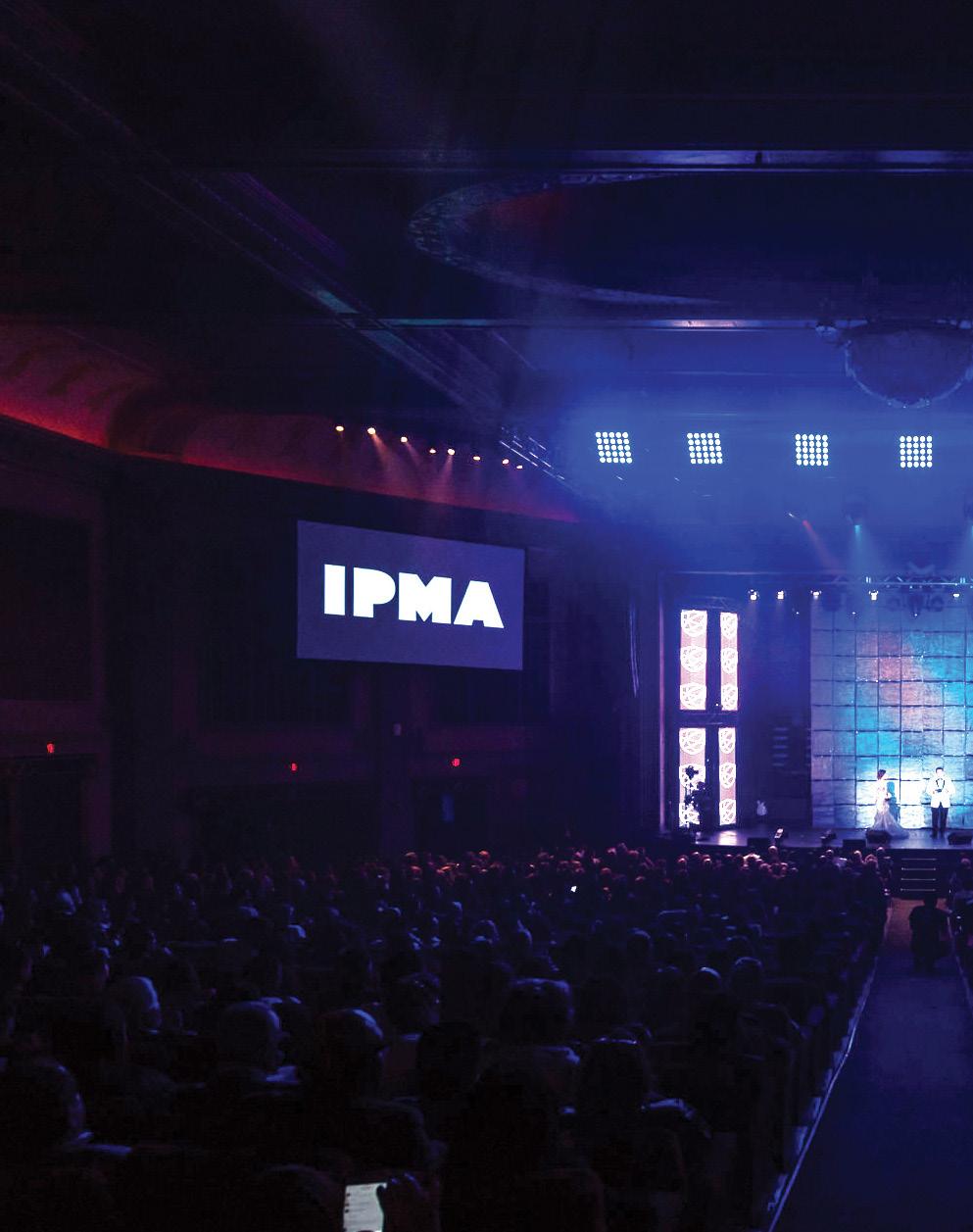
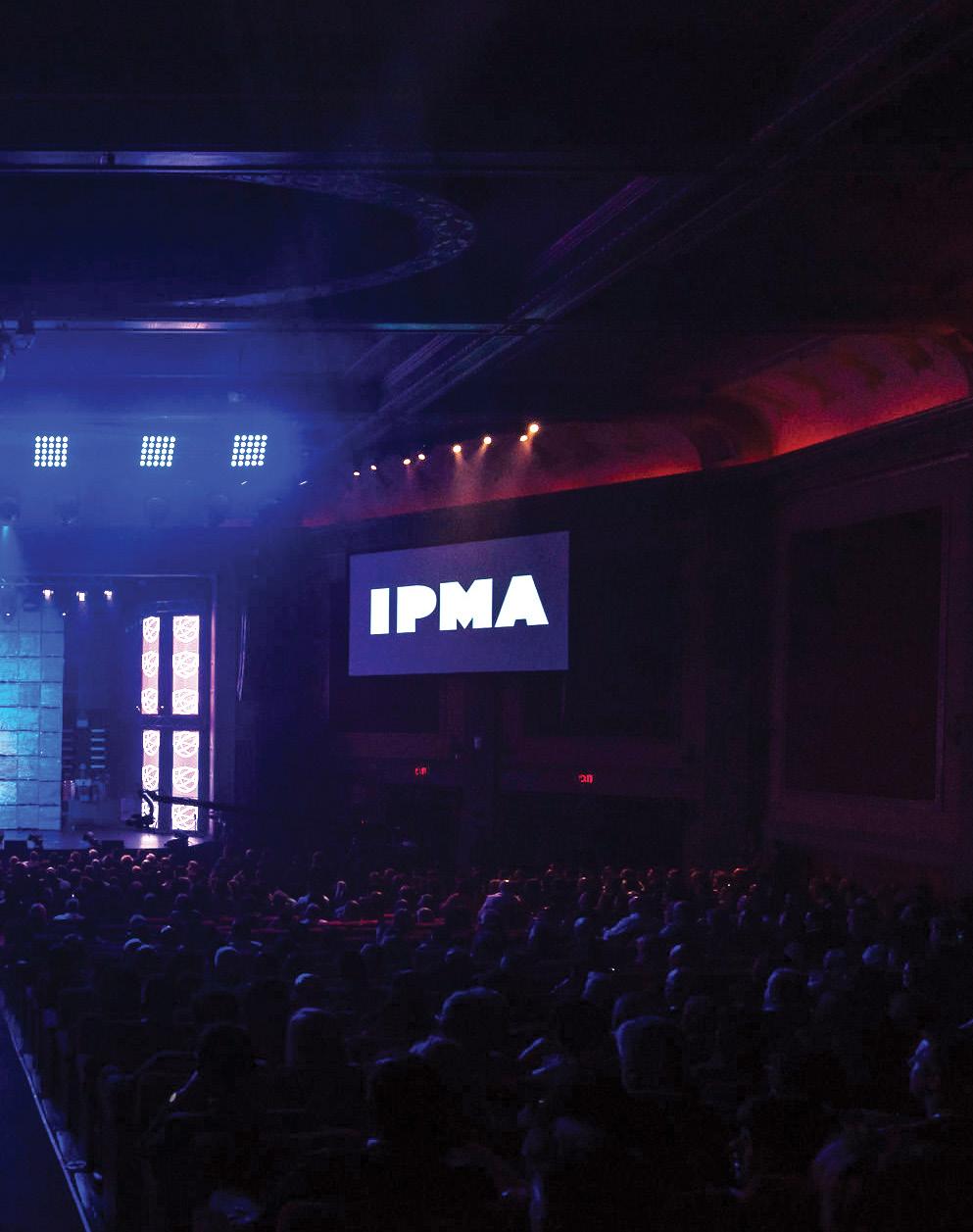
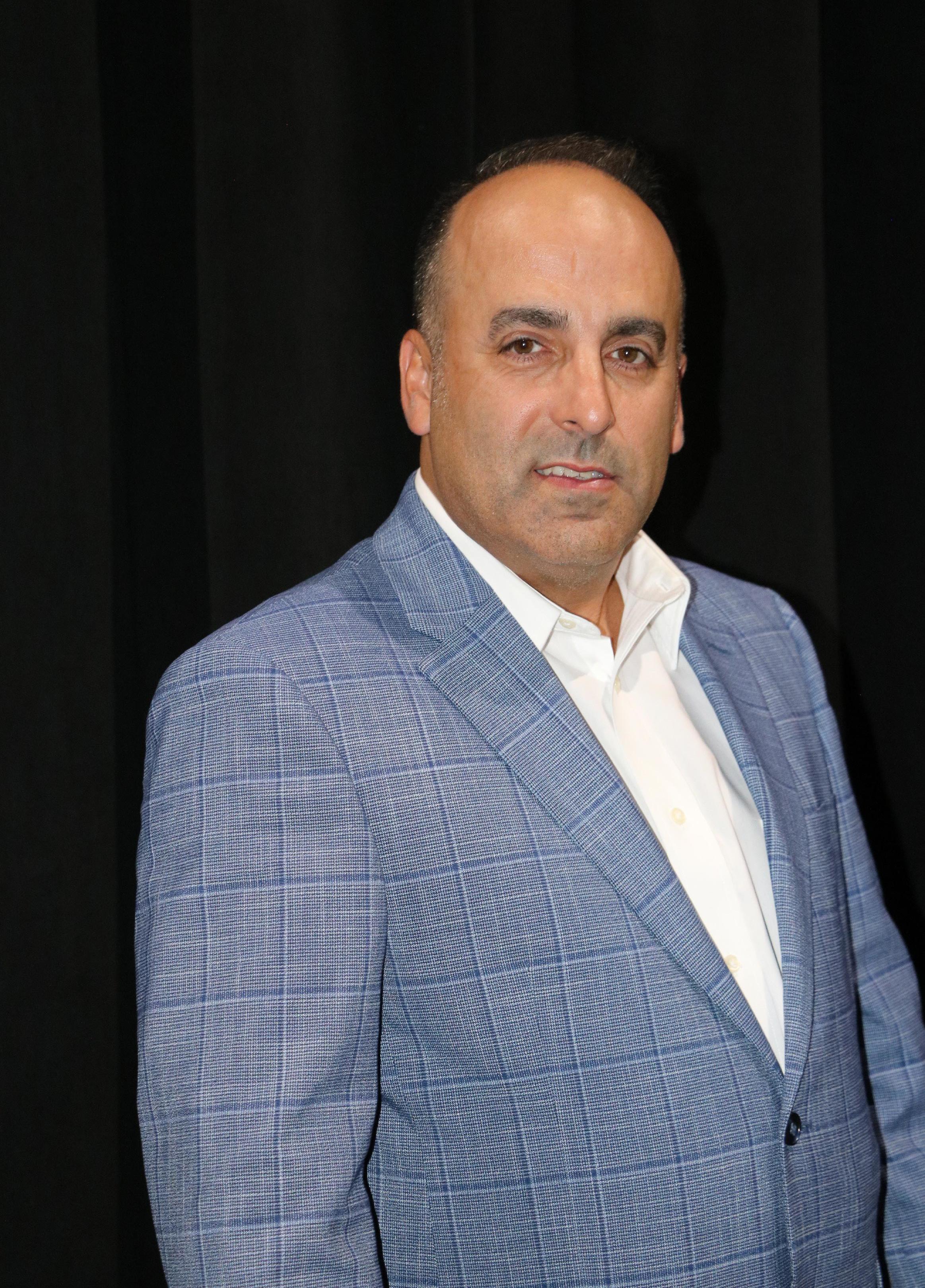
RA: Como veem a comunidade jovem luso-descendente de hoje no Norte da América? Eles ainda apreciam música cantada em português ou preferem tudo em inglês ou é-lhes indiferente? DS: É assim, há um ou dois géneros musicais portugueses que são mais populares, por causa da imigração. Os pais quando deixaram a sua terra e chegaram ao novo país, dedicaram-se ao trabalho e trabalhavam arduamente e a tendência é escolherem música que fale da saudade ou das festas - que é a mais procurada. Porém, é só uma certa geração. Quando falas dos jovens é diferente e preocupamo-nos em mantê-la envolvida e interessada na música portuguesa! Nós temos que entrar nas diferentes faixas etárias e perceber o que eles querem ouvir e por isso integrámos estes géneros todos nas categorias. E é por isso que, também, já vieram de Portugal grandes nomes do Hip-Hop português ao nosso palco e porque queremos que o público também seja diverso.
RA: Como é que a pandemia afetou os IPMA? DS: Afetou pela negativa e pela positiva. Pela negativa, porque já tínhamos tudo planeado para os IPMA 2020 e tivemos que cancelar, o que não foi bom para ninguém. Para quem vive da música, desde os músicos aos técnicos, foi muito mau. Pelo lado positivo, porque temos que procurar coisas positivas dentro de situações negativas, possibilitou um “intervalo” para que pudéssemos autoavaliar-nos – onde chegámos com os IPMA? Qual o caminho que queremos seguir? – Portanto, deu-nos tempo para pensar, fazer experiências, etc.. Contudo, fomos forçados a fazer o espetáculo virtualmente e é um campo novo para nós, mas aprendemos como fazer um melhor programa televisivo, porque no fundo o virtual não é mais que isso, sem ser ao vivo. Por isso acho que é bom para os IPMA. Também nos apercebemos que tínhamos que expandir e sair da área de origem. Essa é uma das razões por que estamos aqui, em Toronto e, porque precisávamos de ajuda de fora dos E.U.A. para deixar de ser tão centrado e o Canadá era obviamente onde poderíamos dar o primeiro passo para isso, por causa da população existente na comunidade portuguesa. Como sabes, são mais de 500,000 mil portugueses.
RA: A pandemia afetou o mundo avassaladoramente e trancou-nos em casa. Contudo estão a sair singles e álbuns muito bons, à escala mundial, criados durante o confinamento. A nível criativo acham que o confinamento foi, de certa forma positivo ou nem por isso? DS: Não há como avaliar, mas estou disposto a apostar que foram escritas mais canções neste ano e meio do que em outro ano meio qualquer. Apesar de as pessoas estarem a escrever canções, a nossa preocupação era saber se estavam a gravá-las e a lançá-las porque só assim é que as podiam inscrever. Estávamos preocupados, porque não sabíamos se íamos ter inscrições como tínhamos habitualmente e ficámos agradavelmente surpreendidos quando recebemos muitas mais do que era habitual. O que prova que os compositores ainda estão por aí e a fazer o seu trabalho, como gravar e lançar música. Os artistas estão a encontrar formas para continuarem a crescer e sobreviver.
RA: Porque decidiram acrescentar a categoria Quarantine Performance nos prémios deste ano? Era importante integrar esta categoria? JX: Por acaso até foi uma decisão óbvia e mais para encorajar os artistas a gravar em casa com os telemóveis, caso não pudessem gravar nos estúdios. Dar a estes artistas, que não podia trabalhar com profissionais, uma oportunidade de poderem inscrever as suas músicas. Sim, era importante. DS: Quando ficámos confinados começámos a ver nas redes sociais vídeos feitos em casa a tornarem-se virais e quisemos transmitir isso aos artistas.
RA: 2021 marca a parceria com a Camões Entertainment Group. O que é que se pode esperar desta parceria? Que objetivos pretendem alcançar? DS: Unir forças e chegar mais longe! Há coisas que fazemos bem, mas há mais pessoas a fazer outras coisas bem, então vamos juntar-nos e ajudar-nos mutuamente! É preciso tempo para nos conhecermos, mas penso que estamos num bom caminho. Como por exemplo, nós nunca tínhamos tido uma “Viewing Party” e hoje estamos a ter uma. Tudo é possível.
RA: Para o ano celebram o 10º. Aniversário. Já têm data fixa e local para o evento? JX: Sim, está marcado para o dia 23 de abril de 2022. Como o Zeiterion Theater só tem 1,220 lugares, vamos mudar de localidade, mais concretamente para o coração da capital de Rhode Island que é Providence e escolhemos o PPAC (The Providence Performing Arts Center) porque tem capacidade para 3,000 pessoas. Já há muito que queríamos dar este salto e o 10º. Aniversário é a altura certa para o fazer. Penso que levar os IPMA para Providence é mais uma etapa alcançada… melhores condições, melhores hotéis e restaurantes e a sala também é muito melhor.
RA: A Gala já vai poder ser presencial? JX: Sim.
RA: Podem desvendar um pouco do que podemos esperar? DS: Posso adiantar que não vai ser só entrega de prémios porque vamos também homenagear alguma parte da história dos IPMA… estamos muito entusiasmados com o que estamos a preparar.
RA: Todas as Galas são especiais, mas celebrar uma década de música portuguesa e luso-descendente é um marco histórico. Haverá alguma surpresa ou surpresas? DS: Claro que vamos ter surpresas, mas para já não vamos revelar porque estamos a finalizar os pormenores… JX: … e na Festa de Apresentação, que se vai realizar já no dia 20 de novembro em Providence, vamos anunciar o que estamos a preparar.
RA: Através desta parceria com a Camões Entertainment Group, há a pretensão de trazer os IPMA até ao Canadá? DS: Por causa do Covid-19 não tínhamos locais para fazer o espetáculo e forçou-nos a fazê-lo virtualmente, que automaticamente é como se tivéssemos relocalizado o evento e, portanto, a partir daqui podemos realizar os IPMA em qualquer parte. Se já falámos sobre essa hipótese? Sim. Para já, no próximo ano vai ser em Providence e no ano a seguir ainda não sabemos. Contudo, no futuro, consigo “ver” o espetáculo em várias cidades…
RA: … cidades onde a diáspora portuguesa está representada? DS: É possível. Teremos que começar onde haja uma comunidade forte, por causa do apoio… pois torna tudo mais fácil. Portanto, iremos para onde houver mais portugueses, como quando começámos. New Bedford é o epicentro da comunidade portuguesa de Massachussets como do Canadá é Toronto.
RA: Gostaria de vos convidar a deixar uma mensagem aos nossos leitores. DS: Continuem a apoiar os artistas, pois não é uma carreira fácil e porque temos todos uma coisa em comum - somos portugueses! Vamos ajudar-nos uns aos outros, honrando e celebrando a nossa cultura. Eles têm o sonho de fazer da música uma carreira e nós estamos aqui para os apoiar. Nós todos os anos ficamos admirados com os músicos e os seus trabalhos… quando ouvimos é “wow!”. Por isso, vamos juntos apoiámo-los! Enviem-nos as vossas ideias e feedback, pois gostaríamos de ouvir a vossa opinião. Gostaria de convidar os patrocinadores a juntarem-se a nós e procurarem-nos para qualquer esclarecimento. JX: E não deixem de seguir os IPMA nas redes sociais através de www. ipmaawards.com. Inscrevam as vossas canções até ao próximo dia 30 de novembro.
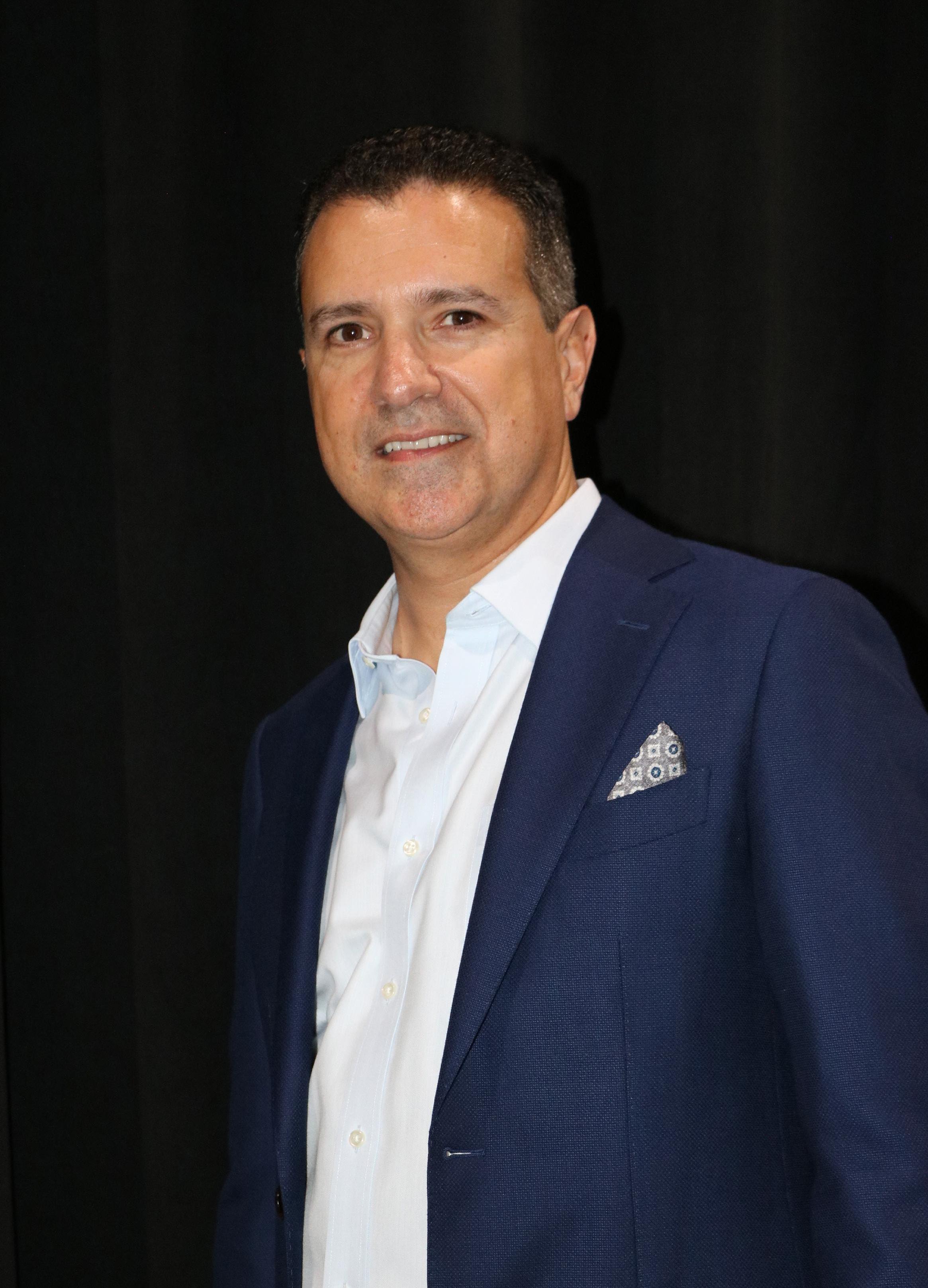
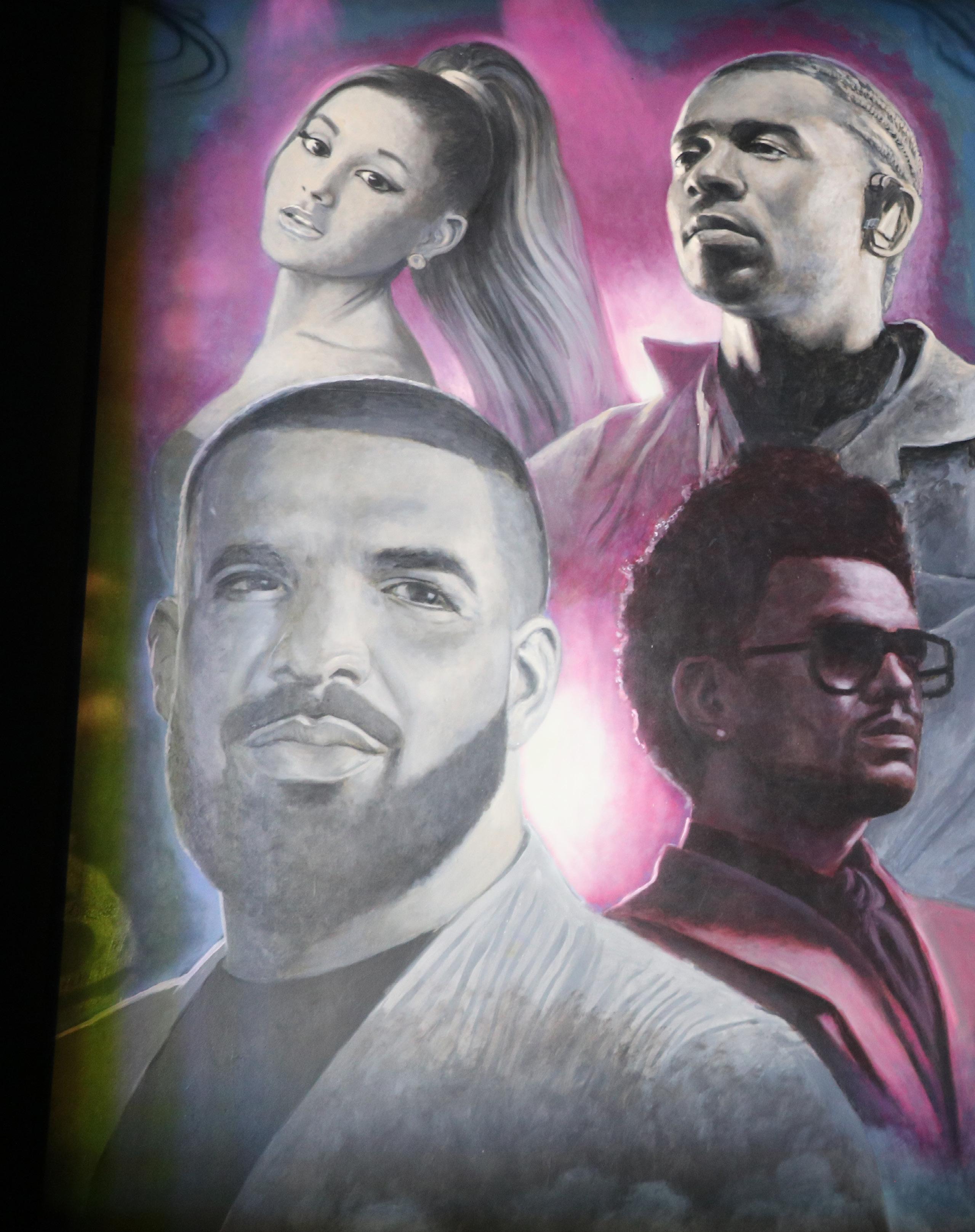
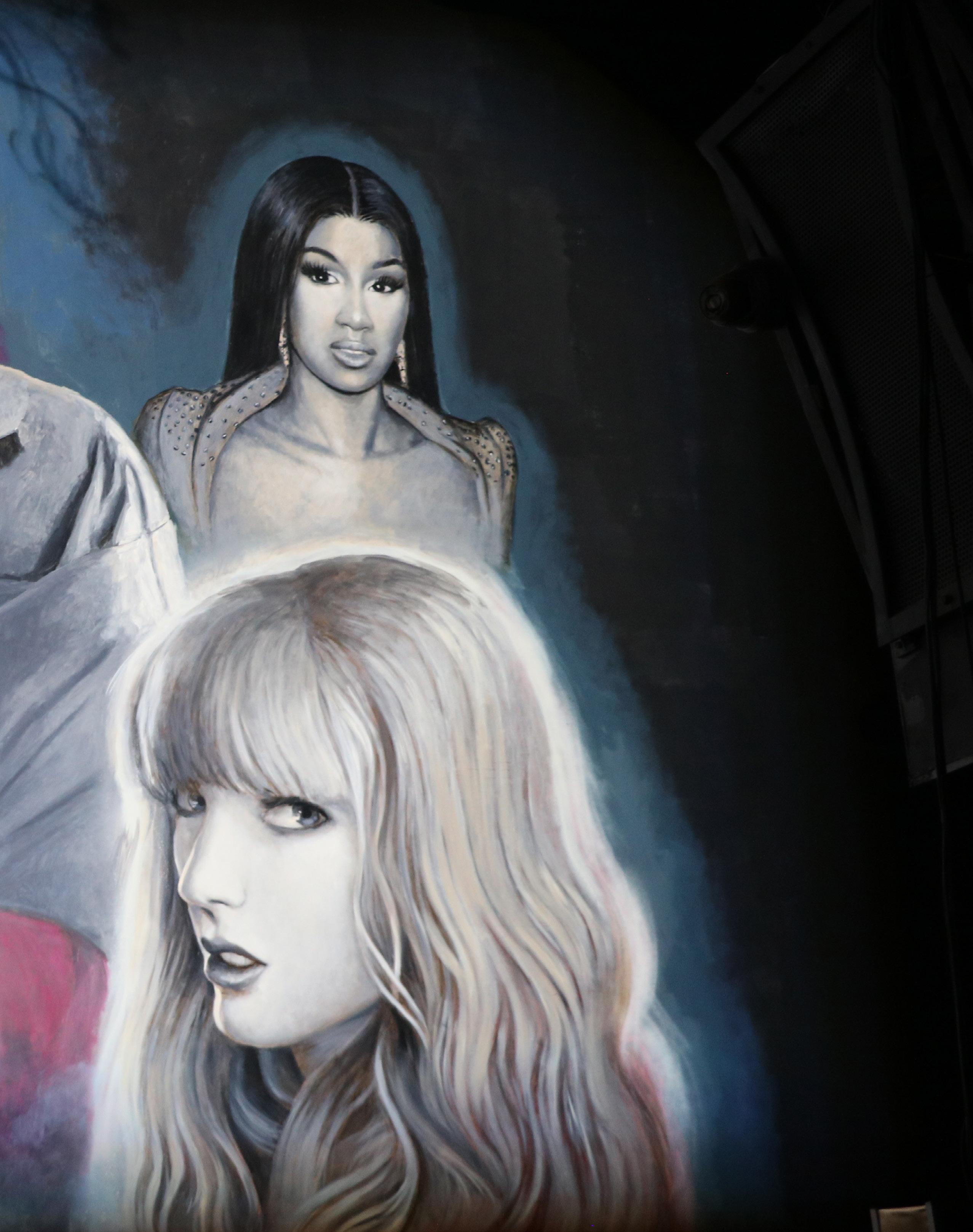
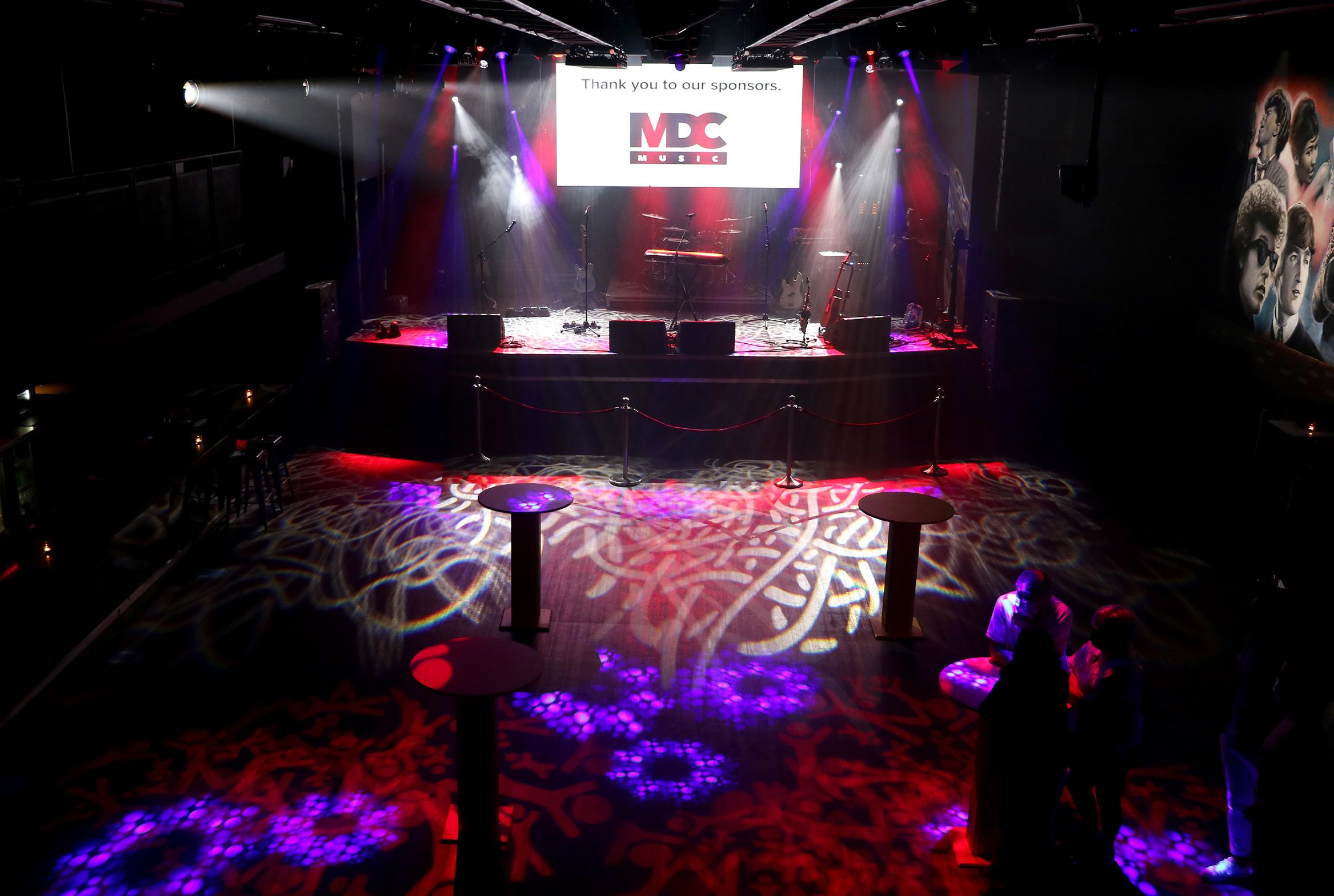
FOTOGRAFIA © CARMO MONTEIRO



There’s a new club in town and it’s taken over the space where an iconic venue once stood. This new club is completely focused on the future—equipped with the tech needed to give artists and clients the opportunity to have a completely modern experience. The space now has the best cameras on the market to provide live streaming experiences of maximum quality, LED screens and amazing audiovisual equipment.
The Axis Club, formerly The Mod Club, now opens its doors to new projects, but with the intention to always make history.
The reopening took place on September 9th and was a huge success. The club is now taking steps towards new achievements and we can expect many events in this completely renovated venue.
We were present at the event and had the opportunity to chat with Orin Bristol, Director of Venue Operations, who told us all about the process behind the change and the prospects for the future.
Revista Amar: How was The Axis Club opening? Orin Bristol: It was excellent. It was wonderful to see live music back in effect, the crowd was excited, and the bands did an excellent job performing. It was really good. I think the most exciting part, to me at least, were the people who couldn’t come to the opening but who watched at home via the streaming service. They were able to watch the concerts, and several of them sent me pictures of them sitting in the living room with their friends and family watching the concerts. So, to me, that was very cool to see.
RA: Keeping in mind, we are still dealing with Covid-19, what are the expectations until the end of the year? OB: I believe that once the government gets the vaccine passport in place and we have an idea on how things are supposed to operate, I believe they will allow things to move from 25% capacity to 40% or 50% capacity for a couple of months. If everything stays ok, I believe they will let the capacity be at 70% or 80% by the beginning of 2022. I’m hoping to go into the summer next year with 75% or 80% of capacity.
RA: What changed from the Mod Club to the Axis Club? OB: Right now, we got a beautiful mirror on the wall, but the biggest change is the quality of the lights, the sound, we have a beautiful LED screen… Technology is what changed! Many people who have played at the Mod Club became massive stars – The Weeknd is one of the biggest artists in the world, and he played at the Mod Club at one point. Today is different: people consume media online first; kids are discovering new artists on Instagram or YouTube. With the pandemic for the last year and a half, people got used to watching concerts streamed online, which is normal for them. So, the biggest changes for us now is: if you have a concert here and it’s an artist that people have been following online, you can watch the show that is happening here in Toronto while you are anywhere else in the world, and you can watch it live! That’s what’s amazing! If you are a company and you are doing a concert here with an artist, and that concert becomes sold out, you can still sell tickets online, and you can not only get an extra 100 people, you can get 10,000 people watching the concert. There’s always a point in artists that are successful that they become too big for the venue, and what we have done here is thinking about making things work in case that happens. You can always expand to another level. For an artist to have the ability to reach out to people internationally if they wish because they can buy a stream for a normal fee, that is something that puts the power in the artists’ hands.
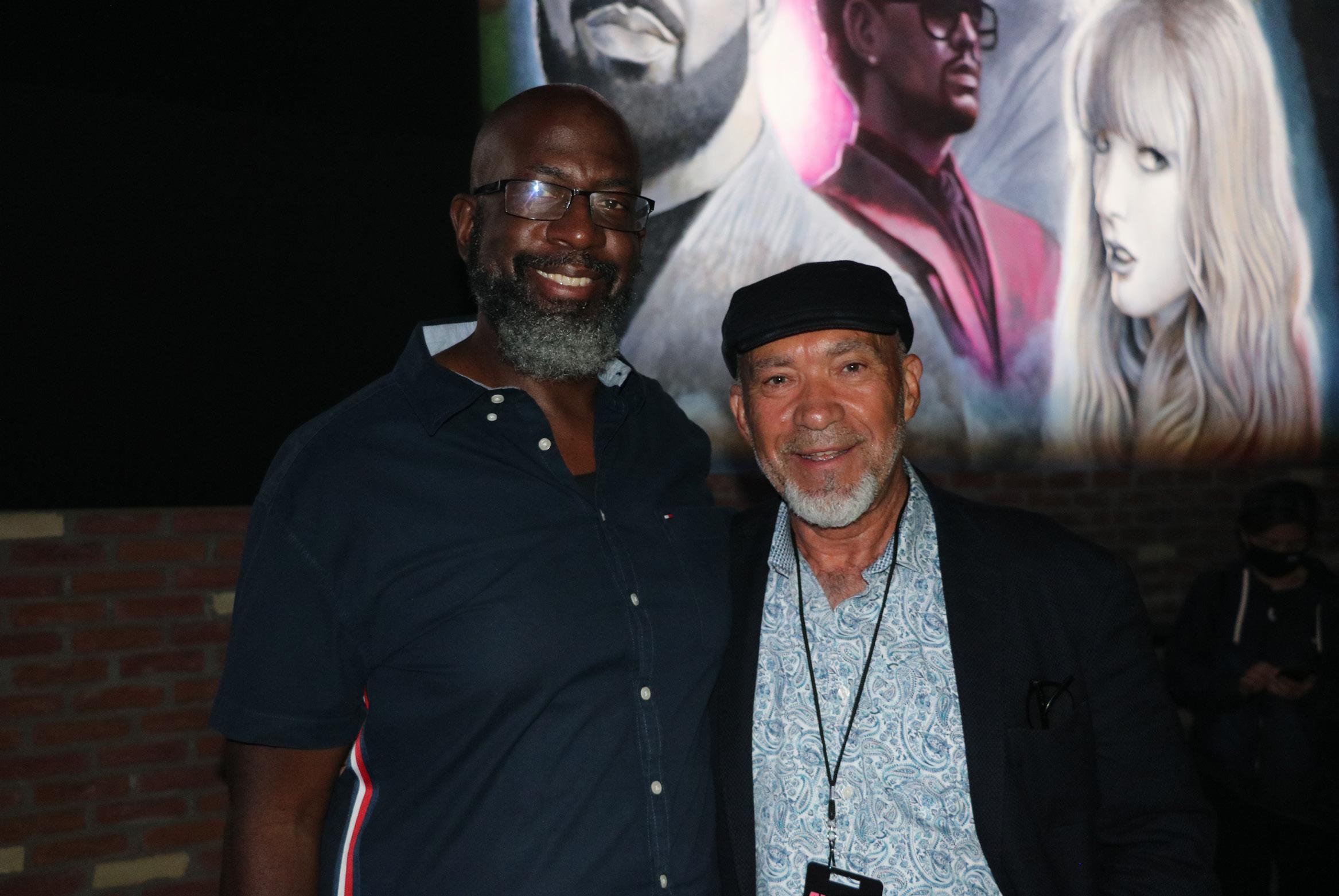
FOTOGRAFIA © CARMO MONTEIRO

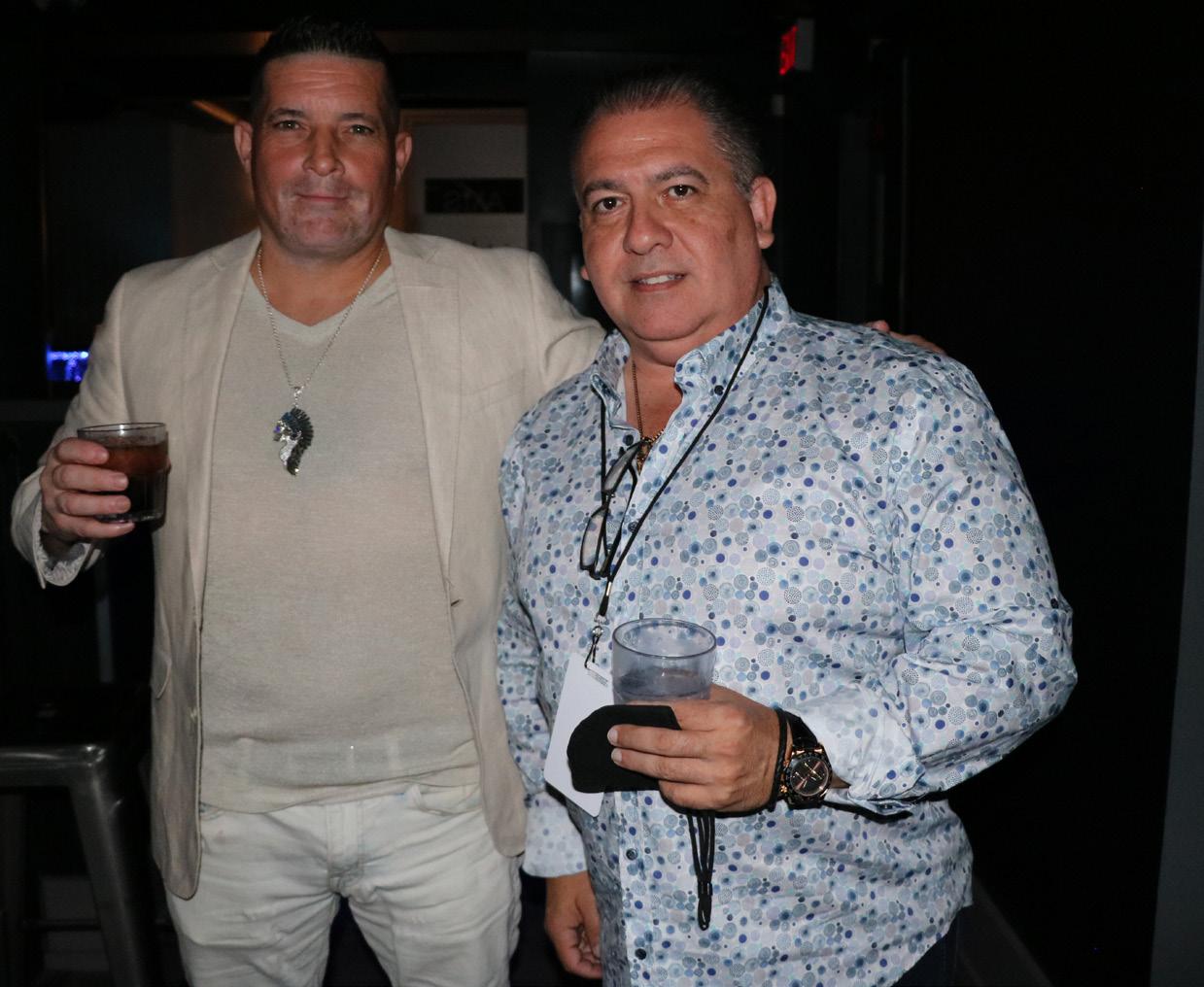
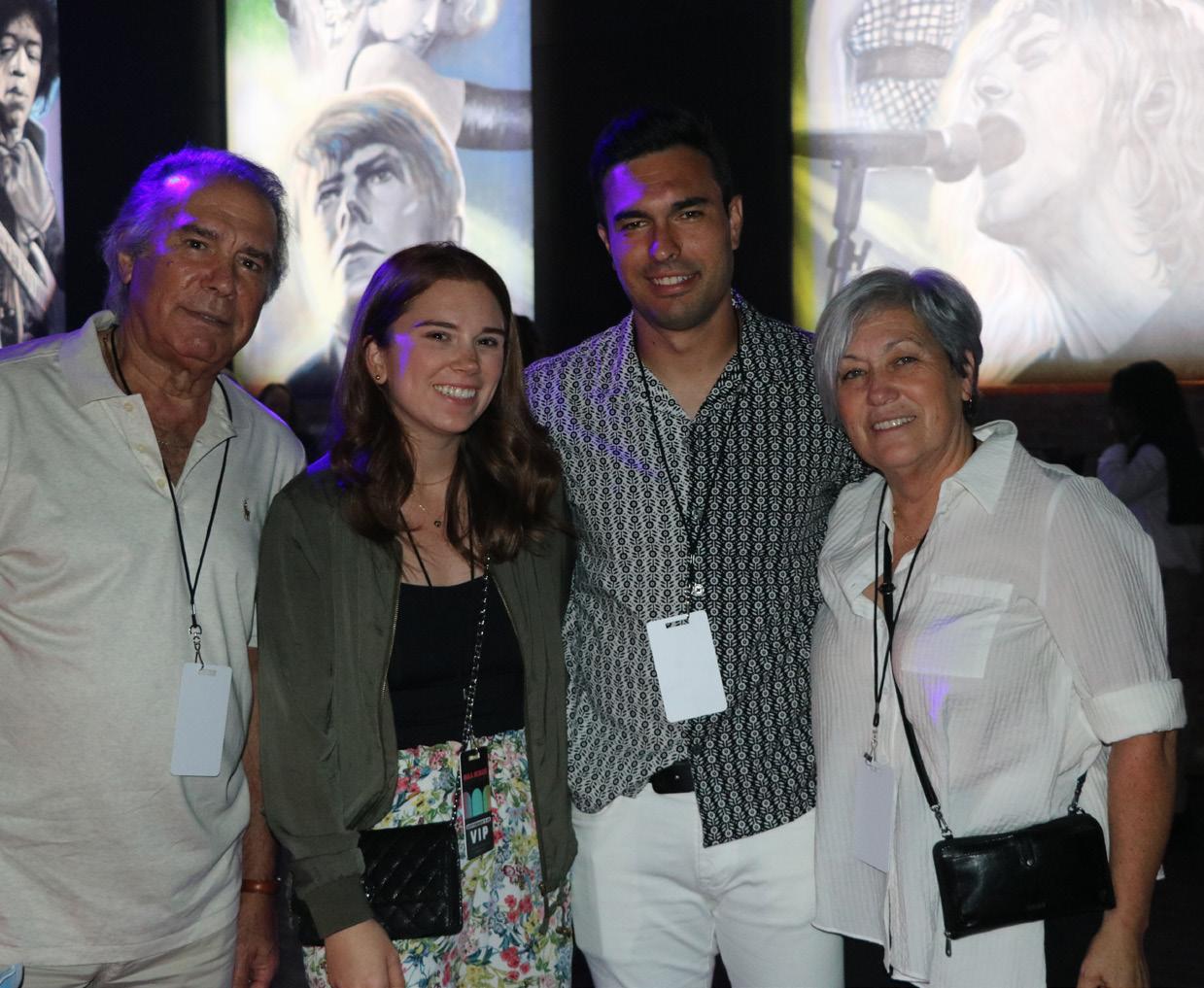
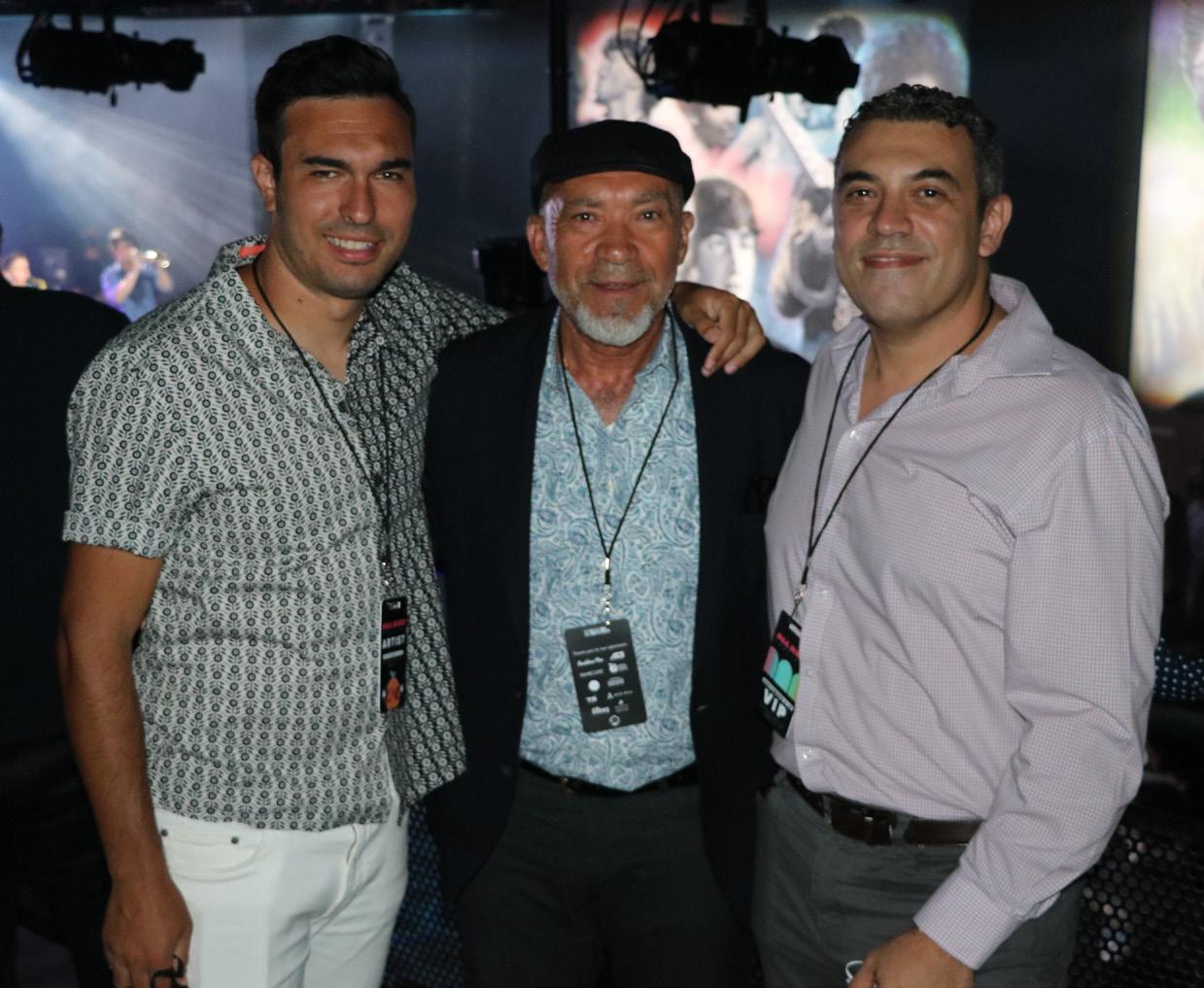
RA: At the end of the day, maybe that streaming part was something good that came out of this pandemic… OB: I mean… yes. Of course, we wish Covid-19 never happened, but because everything was locked down, it gave us the ability to fully renovate the venue. Most concert venues are going to have to do this, and this is what the future is going to be for everybody. The ability to still work, even though your numbers are reduced, is going to be important for everybody. But while everyone is trying to make it work in their existing venue, we were able to get this venue done properly. The quality of the cameras, the quality of the stream are top-notch, and that is what we are aiming for.
RA: What type of artists can we expect at Axis? OB: We will have various types of artists here! From rock to hip hop, R&B music, a lot of different live music. We also have other events, for example, once a month, we will have “Boys Party” having their showcase and we will have a Drag Queen show happening here as well. There’s definitely different type of things happening here. We have events that are culturally based as well. We want to bring a lot of different kinds of events to the table.
RA: Mod Club was a well-known club established in the community. Why was it also important to change its name? OB: It was important to change the name because while Mod Club was an iconic venue, for the people who are now coming to live shows, it was their parents’ venue. I remember when I interviewed some people here, who were coming for a job, they told me that when they told their parents they were coming to apply to work here, their parents said they had met here (laughs). This is now a brand-new venue, and it’s not your parents’ Mod Club anymore. It’s your Axis.
RA: Why “Axis”? OB: I don’t really want to speak for Manuel (DaCosta), because the name was already in existence when I came on to this team. But what I would say to you is that when I saw that name, is that it gives people “access” and “axis” as a turning point. Axis can be “access”. I’m giving you “access” to this venue, to all these concerts and events.
Donald Ziraldo
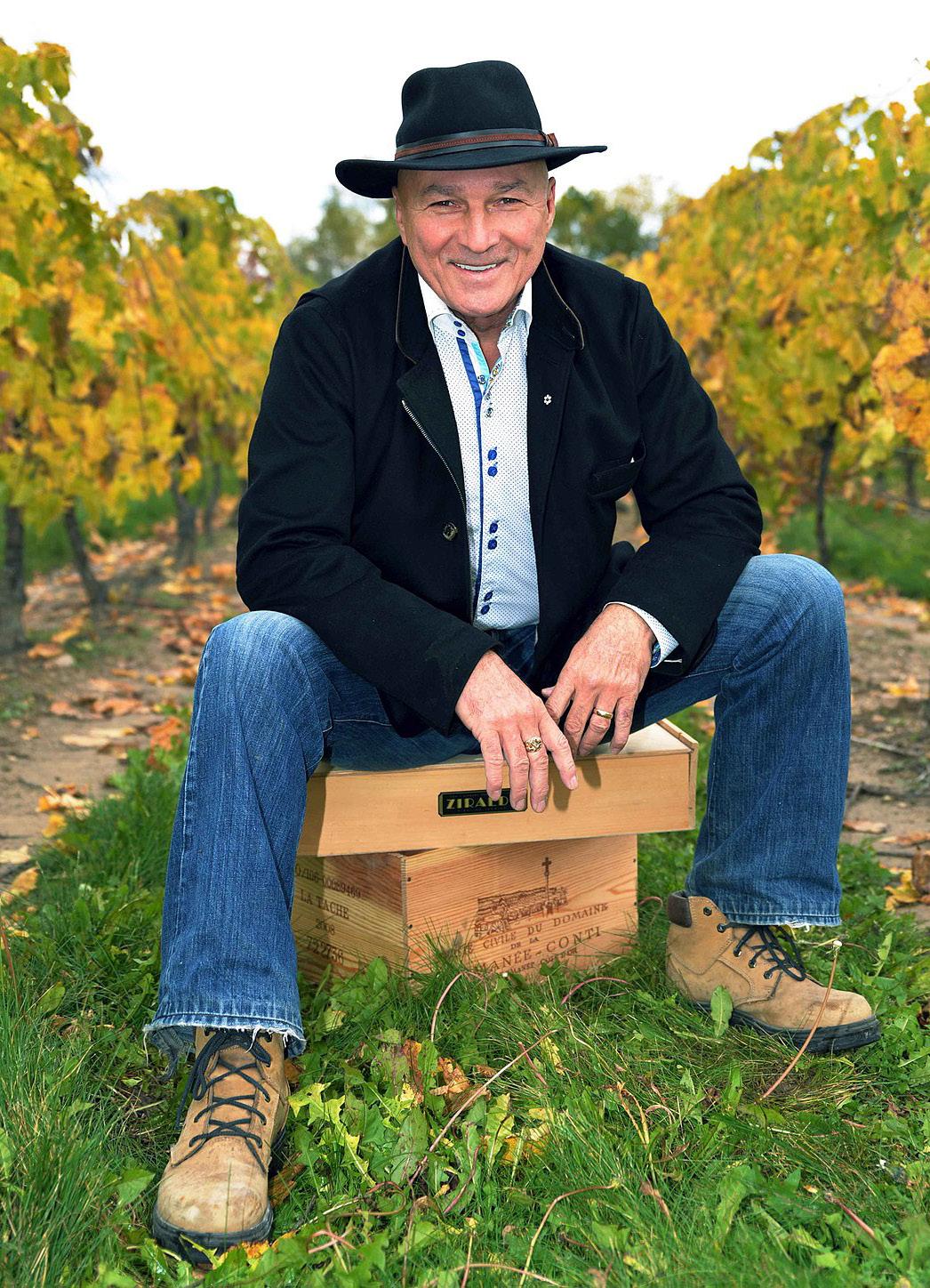
Créditos © Vpiotrowska
September has arrived, and with it the wine has arrived. Wine-making culture goes back thousands of years. In literature, wine is often connoted with happiness and friendship, symbolizing sustenance and life. From homemade wine fabricated in the house cellar to those bought from a local winery, one thing is guaranteed, there’s always a bottle when it’s time for a dinner or a special celebration.
For the program Here’s The Thing (Camões TV), Manuel DaCosta had the pleasure to interview Donald Ziraldo, a Canadian entrepreneur and wine-making business legend. Born in St. Catharines, Ontario and coming from an Italian family, Ziraldo was enticed to the wine-making business at an early age. He co-founded the Inniskillin Wines Inc. on Niagara-on-the-Lake in 1975. Since then, he has been recognized numerous times for his product quality and his expertise. From spending seven years in Portugal studying the process of making Port to mastering Ice Wine, he is certainly the best person to explain the wine business to us.
Manuel DaCosta: Why did you want to be a winemaker? Donald Ziraldo: I grew up on a farm in an Italian family. It’s in your blood that you will be a wine drinker. I drank my first glass of wine when I was eight years old with my father. That’s part of the culture in Italy as it is in Portugal, where I had the pleasure of working in Douro for about seven years making Port. It was just a natural evolution. I was in the nursery business, and I met an Austrian guy looking for grapes that didn’t have that Canadian flavour, that foxiness… he wanted the European types. That’s how it all started, very innocently. My interest in the nursery grew into supplying European grapes. That’s how I got involved with Kaiser and started a winery. Very naïve at the beginning, it involved a lot of hard work.
MDC: You grew it into an incredible winery. You left for about 10 years, and now you are back managing the Ice Wine division. Is Ice Wine the product that is closer to your heart? DZ: Absolutely. When Karl and I started the winery back in ‘75, our intent was to make table wine. We slowly graduated from the hybrids to the viniferous, like Pinot Noir and Chardonnay, as we became more skilled at growing the European varieties. Once the Ice Wine phenomenon happened in ‘91, we won the award that really put us on the world map. Karl’s idea came from Austria, which is where he is from. He thought we should try it here. We are blessed with cold weather in Canada. We did not invent it. Ice Wine started in Germany in the mid1700. We just took a great idea and incorporated it. MDC: You mentioned the Douro Valley and the Portuguese Wines. I just returned from a five-day trek through the Douro Valley and the wineries. As you know, the visuals are incredible, and the process of growing and collecting grapes is an amazing story. What did it do for you to spend those seven years in Portugal, looking after Ports? DZ: One of the great things about the wine business is the comradery amongst the vintners. We had great friendships with Sandro Boscaini of Masi and Angelo Gaja in Italy as we were starting. When I went to Portugal, it was because Canadians bought a mining company and wanted me to look after the vineyard, and I jokingly said: “if you let me live in the monastery, I look after it”. It was a great experience because Ice Wine and Port are both kinds of dessert wines if you categorized them as that. You have them with a cigar after dinner or for a celebratory moment. So it wasn’t a very unnatural fit for me to take on Port. The real wonderful thing about wine, wherever it is in the world, is that it expresses not only the soil but also the region’s character. What you find with the wines in Niagara where it’s starting to match the culinary with the wine, being that where you come from in Portugal and where I came from in Italy, it’s part of the daily life. Wine and food accompany each other. That is coming in Niagara, and we are seeing it more, particularly with local foods, especially now that with Covid-19, people are trying to support local. We have started the harvest; the early varieties have started here in Niagara as they have started around the world. The weather has been somewhat perfect this summer. A lot of heat, maybe too much some days. If the weather holds up, we will have a great harvest.
MDC: With your involvement in the wine business, especially after ‘83, you have seen the changes that have occurred. Everyone is talking about climate change. Are you having more difficulty with the Ice Wine crops because the weather has warmed up? Does it concern you at all? DZ: We certainly keep an eye on it. Being a farmer, you are always watching mother nature. Has it affected us? It certainly has. What is happening is that you are getting more extremes, as opposed to just global warming. This year we did the harvest on January the 30th, somewhat late. It was a while before we got the -10ºC. Did you know that Portugal is the oldest wine nation in the world? Even before France. It was something interesting I’ve learned that while I was in Portugal. We are catching up. Our limitation here is not only the cold weather in the winter. We have to be careful with the vines to mature them because it’s a cool climate viniculture area, which gives us high acidities in the grapes, which works very well in the Ice Wine. The secret to Ice Wine is to get the balance between this intense sugar because 90% of the water comes out of the barrel when you freeze the grapes in the winter, so you only have 10% left. Therefore, very expensive and high risk. In ‘83, when Karl came up with the idea and asked if we could leave some grapes in the vine, I thought we may have drunk a little too much. He then told me they do it in Austria and Germany. So, we left 13 rows and on December the 3rd in 1983, Karl came back from a conference and started to yell because he thought someone picked the grapes. What happened is that due to the snow, the birds had nothing else to eat so they devoured all 13 rows. We learned the lesson. We had to put nets on. In 1991, we had a great opportunity and won two grand prizes that set the stage; the wine media took note, and suddenly Canada was on the map. Our click was in Japan, where we really built the business.
MDC: Niagara growers seem to reserve fewer and fewer grapes in the past couple of years for Ice Wine production. Is there a reason? DZ: The pandemic shut everything down because the wineries were closed. Fortunately, the grapes are not affected. This summer, the growers have made it through. Fortunately, being outside, you got all the distancing you need. It has affected the retail side. Where it really hurt us in the hospitality business. All the restaurants that used to serve wine shut down. The industry has segmented into a few cold wines, and a lot of inexpensive wine has become popular even in a box. Think about it. You used to buy a nice bottle to impress your guests. Whereas now you are just sitting at home, watching tv or doing a Zoom call. That shifted a lot. In terms of export sales, they are non-existent. I just had my first order in two years from Paris, France. Everybody was using the inventory they had. Since they had those in inventory, some restaurants actually started selling wines to have the cash to buy the meat and the vegetables. The LCBO and the Government of Ontario were very good in allowing people to do wine with take-out. That was a significant help. Things have changed, some for the better. Unfortunately, sales are down quite dramatically, but hopefully, we’ll catch up when people take all that money they have saved to buy wine.
MDC: I know I haven’t slowed down in my purchases [laughs]. 2020 was one of the smallest harvests in 20 years. Do you think that once things normalize, the market will get what it used to be or is the global competition also affecting the sales of Canadian wines? DZ: I think it will come back better and stronger because the pandemic has forced people to shop locally. So, a lot of people have discovered the wines in Niagara. Niagara-on-the-Lake was Canada’s first capital, many people don’t know that, but 18,000 people are living in the four little villages. The silver lining is that people have discovered the wineries. With the younger generation, the whole social media thing changes the dynamics. Now people can buy wine online. There are a few positive things that have happened. MDC: There are 411 wineries in Canada, and as you said, the pandemic affected a lot of the sales. How do you think most of these wineries have survived for the last two years? DZ: They are all struggling and trying to find other venues. I’ve talked to a couple who have done extremely well online, and then some have opened recently. But it has been very, very busy. I think everyone wanted to get out. What can be better than having a nice winetasting, doing a tour, and picking up some local fruit? That is what will help; if people make an effort to support the local restaurants and local businesses. What I would say is to buy local. I have attended numerous dinners done with local produce, and the Chefs are proud of it.
MDC: Regarding interprovincial barriers on bringing wine across borders which have been an issue for a long time. Right now, only BC, Manitoba and Nova Scotia allow the transportation of wines. Is this detrimental to the wine business in Canada? DZ: It’s detrimental to everything. Even Covid, this whole fiasco of giving the provinces jurisdiction simply doesn’t work. It’s one country! We have better trade with Italy than we do with other provinces. It’s a silly regulation. In 1986, when we did Expo 86 in Vancouver, Franco Prevedello, a great restauranteur from Toronto, got the contract. I tried to get the wine to be served; I couldn’t do it because it had to be submitted and bla, bla, bla. So, we loaded it in a truck, along with the tables, clothes and whatever other things Franco needed to make an Ontario Pavilion. Basically, smuggling it into the free trade zones. That is kind of silly that we had to do it. That was in ‘86, and I remember sitting with the Premier, and I mentioned how absurd that was. They said they were going to fix it. Well, it’s still not fixed. It’s just bureaucracy. It would open the market and facilitate the process.
MDC: Being in Canada for 50 years but coming from a different country, it seems that we still tend to order a wine from the country we are originally from. Why aren’t people ordering more Canadian wine? DZ: Canadians don’t watch Canadian films. They don’t wear Canadian fashion. So, you tell me. It is a phenomenon that I thought that being in this business for 40 years would have changed by now. But there are very strong supporters, the people who support us are very strong. In a restaurant in Niagara Falls, I noticed the guy shifted from predominantly French to Canadian. He is right in Niagara Falls, where all the tourists are, and coming from a Frenchmen. So, it’s coming. The younger generation doesn’t have that hesitation. The old generation reads more about what they should be drinking as opposed to what they would like to drink. That’s the advantage of visiting the wineries. Once people come here and taste the wine, they are sold. Regarding Ice Wine, I always say to people; I will not talk about it or explain it; taste it! And the reaction is always positive. My attitude towards table wines is that we have created this great umbrella. Globally, you can go anywhere and buy Ice Wine from Canada. What happens is that because of the reputation we have established, they expect us to produce a very premium table wine as well to match the quality of the Ice Wine. Portugal has Port, but now the table wines are getting recognition as Vinho Verde and the Red Portuguese wines. Each region of the world has its own recognition. In Canada, is no doubt Ice Wine.
MDC: Do you feel positive about the future of Canadian wines? DZ: Very much so. We only have about 20% of the market. If we were to double that, which is not a big ask, we definitely have an opportunity and great potential to double the production. The only concern is that we got to do something to protect the fruit lands and, right now, I’m on a major mission to try to shut down the development on the QEW. To be honest, if you look at the development on the QEW, we have a migration of Torontonians. It’s driving the prices of land up here. What I’m proposing is that we look at this other highway to move the traffic and put a mid-peninsula cord as it’s called. I’m trying to bring this back on the table to take the pressure of the QEW and for us to have the land. So, when we double or triple the production, we will have land available. Let’s face it. It’s a very limited production. The Niagara peninsula itself, along with Prince Edward County and Pelee Island; it’s very limited. That’s it in Ontario. The rest is not able to grow the premium produce. We need to protect the fruit land here in Niagara.
MDC: It’s a special place. As you know, homemade wine season is starting. If you were to provide some advice to make good wine, what would it be? DZ: Buy local grapes that are ripe, because unfortunately, the grapes that come in are not always as ripe. The only problem is that they always want the best grape that we need to [laughs]. There’s a clash between the ones we want to keep and the ones the winemaker wants. What is great about home winemakers is that once you toil at making it and it turns out… of course is always great. I always say we are better of telling someone that their children are not as smart, don’t tell their wine is not very good. Whether you use a kit from these homemade wine places, or fresh grapes, once you do it and see how much trouble it is, I’m sure everybody appreciates a good bottle of wine that they buy from us.
MDC: That’s why I stopped making it [laughs]. It was a pleasure to speak with you. DZ: I look forward to seeing you down here. Hopefully, some of your readers will join us for a glass before the Ice Wine season starts.
Macedo Wines
Mês das vindimas
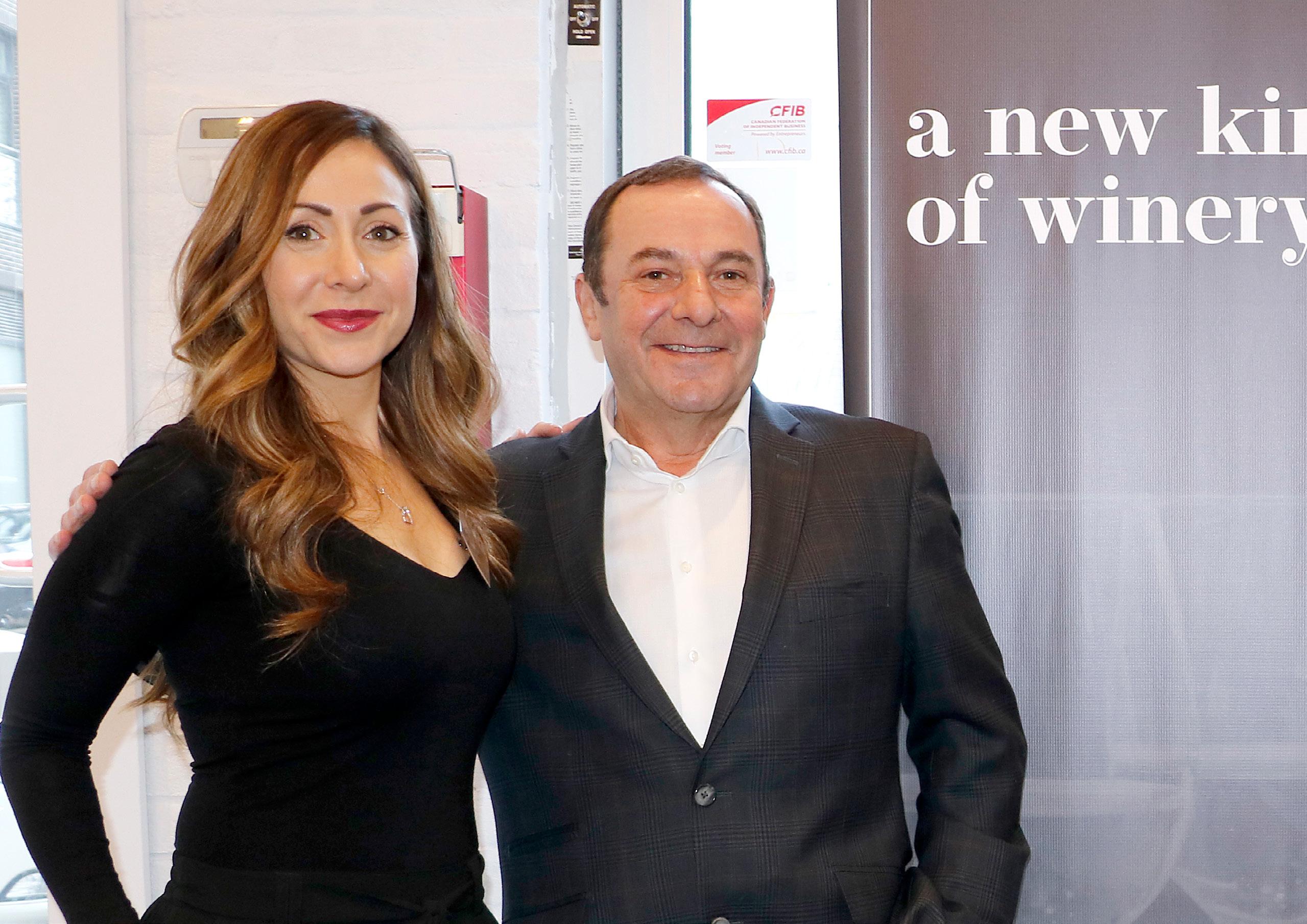
Estamos em pleno mês das vindimas. Tempo de colher as uvas que vão depois transformar-se em vinho. A Macedo Wine tem, nesta altura do ano, uma missão especial – ajudar os portugueses de Toronto a produzirem o seu próprio vinho. Yvonne Macedo prontificou-se a dar-nos a conhecer um pouco do processo, as castas e o futuro desta arte tradicional.
Revista Amar: De que modo servem as pessoas que pretendem produzir o seu próprio vinho? Vendem só as uvas ou têm também um serviço de orientação e aconselhamento? Yvonne Macedo: Nós temos esses três serviços, mas também temos a maquinaria necessária para a produção do vinho.
Revista Amar: E como é que se faz vinho com a Macedo Wine? YM: Há duas maneiras de fazer o vinho e depende do que o cliente deseja. Na primeira opção - e é o que muito clientes ainda fazem -, o cliente compra as caixas de uvas que precisa e leva para casa e faz todo o trabalho em casa, que é: esmagar, fermentar e prensar a uva. Na segunda opção, o cliente compra as caixas que precisa e nos nossos lagares esmagam a uva. A partir daqui há duas possibilidades de continuar o processo. Depois da uva esmagada, o cliente também pode moer e espremer aqui e leva só o suco para casa. Com este processo rende mais em quantidade porque quando estão a prensar a uva forma-se um pouco de borra, que obviamente vai misturada com o suco, mesmo durante a fermentação e só depois é que se vai depositar no fundo do recipiente. Este processo dá mais trabalho ao cliente e como durante a fermentação não tem o bago da uva, o suco não vai ter a cor que o cliente normalmente gosta. O bago da uva tem muitas enzimas que são necessárias para a fermentação e para ir buscar as propriedades da uva. A outra maneira de se fazer, e é a que nos aconselhamos, porque para nós é a mais eficaz, é só esmagar a uva e o cliente deixa que a fermentação se faça assim, o bago com o suco. Deste modo e consoante o gosto do cliente, a cor do vinho é determinada por ele: quanto mais tempo o suco fermentar, mais escuro vai ficar. Depois vai ter que prensar, se tiver uma prensa em casa, porém muitas pessoas vivem em apartamentos ou em lugares que não têm acesso a uma prensa e daí a escolha do primeiro processo e de já só levarem o suco para casa. Mas, como disse, o melhor processo é levar o bago com o suco, porque o resultado é um vinho com melhor cor e qualidade.
RA: Ainda há muita gente a comprar as uvas para fazer o seu vinho? YM: Sim, mas já não é como era há 30 anos.
RA: São os mais velhos ou também já começam a aparecer as novas gerações? YM: É a geração mais velha. A nova geração, não e nem estou a vê-los a entrar no comércio da uva. Podemos ver os netos a acompanhar os avós ou os filhos com os pais mas é mais pela experiência e não acho que venha a ter futuro. Os nossos portugueses e mesmo a comunidade italiana está a ficar envelhecida e não estamos a ver novos emigrantes e penso que em poucos anos a procura de fazer vinho deste modo vai diminuir drasticamente.
Créditos © Carmo Monteiro

RA: E, na sua opinião, qual é a razão ou razões desse desinteresse por parte da geração mais nova? YM: É fácil de explicar. Os emigrantes portugueses, italianos e de algumas partes da Europa vieram de partes dos seus países onde fazer vinho caseiro fazia parte da tradição deles e trouxeram essa tradição com eles para cá e continuaram-na. Agora para os filhos já é completamente diferente, porque vivem num mundo diferente, onde as coisas já estão feitas e basta ir ao supermercado ou à adega comprar uma garrafa de vinho, sem terem que ter o trabalho que os avós ou pais tiveram.
RA: Que castas são mais procuradas? YM: Pelos portugueses é Alicante, Grenache e Carignane, mas nos últimos anos temos tido uma grande mudança porque nós tentamos educar os clientes para outro tipo de castas, e assim sendo, têm vindo a comprar castas de melhor qualidade como o Cabernet Sauvignon, Merlot, Syrah, Cabernet Blanc, Chardonnay, etc.. Claro que é uma uva mais cara, mas que faz, obviamente, um vinho de maior qualidade. E nós não nos podemos esquecer que o português que faz o vinho em casa gosta de dar a provar ao vizinho, ao amigo ou ao familiar porque têm um certo orgulho do resultado… mas os italianos são iguais!
RA: Se tivesse que recomendar uma casta de tinto e outra de branco, quais seriam? YM: Sem dúvida alguma, para vinho tinto recomendava Cabernet Sauvignon e para vinho branco Chardonnay, mas este vinho tem que envelhecer na garrafa durante dois a três anos para ficar bom!
RA: Que castas produzem um vinho que se conserve durante mais tempo? YM: Qualquer casta que tenha um teor elevado de açúcar. Quanto maior é teor de açúcar mais alta é taxa/percentagem de álcool e há várias, como o Cabernet Sauvignon, Merlot, Grenache, Misal, etc.. O segredo da conservação do vinho é a combinação da qualidade da casta com o tipo de armazenamento, ou seja, vasilhas, pipos, cubas, garrafas, etc. e se estão bem seladas. Estes três fatores são muito importantes.
RA: Que vantagens se tem em fabricar o próprio vinho – económicas? Ou o saber exatamente o que estão a beber? YM: Há vantagens económicas. Apesar que a uva está cara, ainda assim é conveniente o próprio fabrico de vinho porque se dividir o preço de custo pelo ano inteiro, faz sentido. Na hora até pode ser um valor alto, mas depois feitas as contas e comparar ao preço das garrafas dos mercados, nota-se a diferença no que se poupou e pessoas da minha geração e mais velhas gostam de poupar e essa é uma das razões porque continuam.





